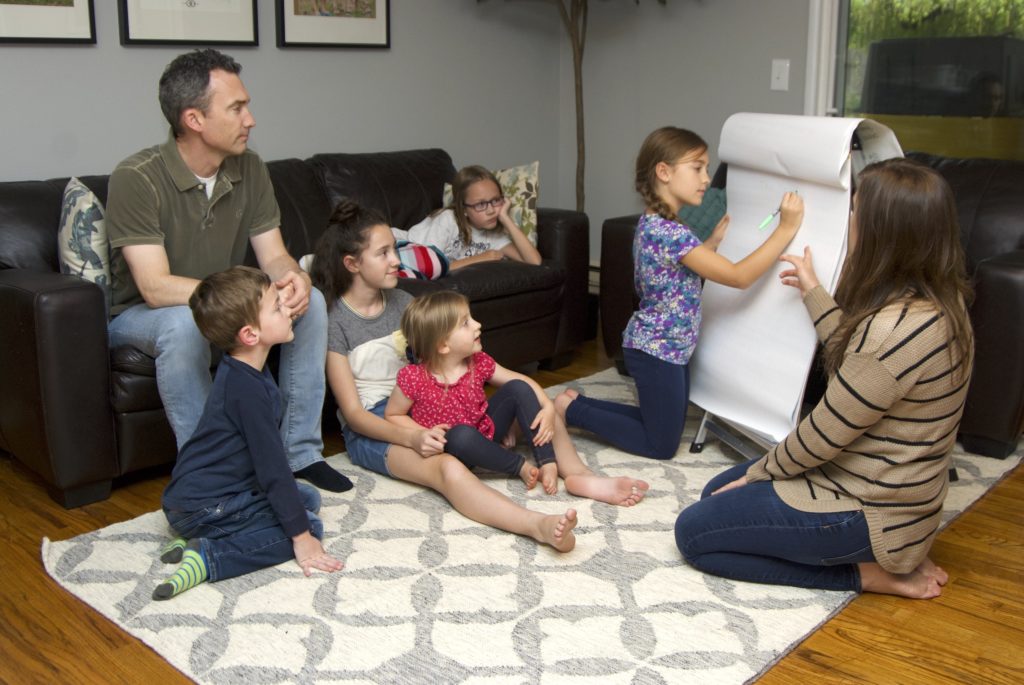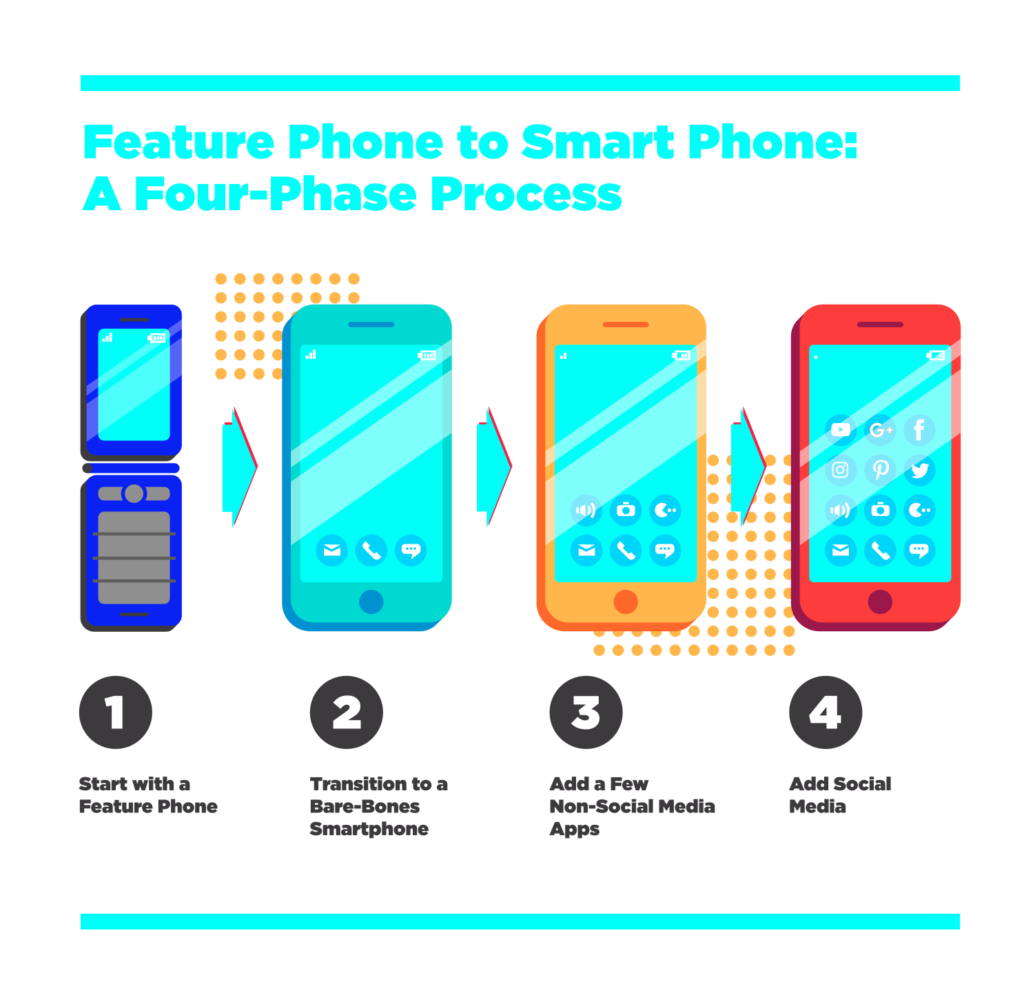I do not know how to sail, but I live near the Columbia River where time on the water is a way of life. As I watch windsurfers, kiteboarders, and sailors navigate on the river, I’m reminded of the preparation and skill required to match the windy conditions and the turbulent water.

What if we were just as diligent in preparing our children for the conditions and turbulence of living in the digital age? Anything worthwhile requires vigilance, preparation and hard-won skills. I believe with the proper preparation and guidance, our children can succeed and thrive in a tech-obsessed world.
Will it be challenging? Yes, it will. Will they make mistakes? Guaranteed. Some of those mistakes will be a hard slap on the water, and others might not hurt so much. These mistakes will serve as reminders that we are all still in-training.
With this in mind, I want to share three concrete ideas that you can use to carry your family, (no matter the ages of your kids or how technology might change), through the rough waters ahead:
Nurture the Relationship
When we realized that we had given our middle school daughter a smart phone too soon, we decided to take a step back and get her a basic feature phone instead. It was hard. But I knew it was the right thing for her and for us. We needed more preparation to be ready for the responsibility of a smartphone.
Someone asked me how in the world we went back to a feature phone. Wasn’t our daughter just so mad? Yes, she was upset. In fact, I know she still wants a smartphone, but it didn’t ruin our relationship. Why? Because I had been investing in that relationship for years. If anything, this experience solidified our commitment to be the parents, while remembering how important it is to offer love and support to our children.
One of our favorite ways to nurture the relationship with our kids is to schedule one-on-one dates with them. We start this from the time they can talk, and it’s something all our kids look forward to! With five kids, we rotate through each kid, so someone gets a date at least every few months, sometimes more often.

When we take time to nurture our relationships with our kids, we give them opportunities to experience a world outside of screens. A date to the park, a bike ride, grabbing an ice cream cone, going on a hike, and more. Every once in awhile we might watch a movie together on our date, but we are doing it together. One-on-one time is especially important to schedule as our kids get older and busier. We need that time to connect with our teenagers.
These dates also give us an opportunity to really talk to each other. Sometimes it’s about the unimportant, the random, and the silly. We get to see our children for who they are. We also can talk about more important things by sharing stories and life experiences. Our kids learn that their parents have had setbacks in life, too, and that we are there to help them be better prepared for sailing out into the world.
Encourage Dialogue
When it was clear our kids had different ideas about technology use than we did, we realized we needed some formal meetings to hash out the hard stuff. This is the whole idea behind our Family Tech Think Tank.

Some people may call this a family council or a family meeting. You can call it whatever you want and make it as low-key as sitting around the kitchen table with some ice cream! The important thing is that the parents are prepared ahead of time and committed to listening as much as they talk. As Stephen Covey said, “Seek first to understand, and then to be understood.” Gathering together and listening to your kids allows you a chance to try to understand their point of view.
You can make your Family Tech Think Tank work for you no matter the age of your kids or advancements in technology. It is timeless! It will always work because you are starting with why and kids can learn why it is important to use technology wisely. It is also a great check-in for the parents. Your kids will likely let you know if you are pushing the family’s tech boundaries.
This conversation might even involve some conflict. Depending on the ages of your kids, these can be hard conversations. Your Think Tank is the foundation and then during the one-on-one dates you can address age-appropriate concerns when they come up.
Consider this: wouldn’t you rather have a difficult conversation when you are prepared, than to do it five minutes before it’s time to head out the door for school and work? Granted, there will always be times when sticky issues arise when it’s not convenient. We should always be ready to share an experience or story with our kids when unexpected teaching moments arise.
Just as sailors prepare their boats ahead of time, we can initiate a family discussion that will give us the opportunity to help prepare our children to learn how to balance technology. We can eliminate constant contention by preparing the sail ahead of time.
Use a Graduated Approach
As I was thinking (and praying!) about when and how to introduce cell phones and personal devices to our children, a scripture came to my mind. Now, if you don’t consider yourself to be religious in any way, hear me out on this. This concept is applicable to anyone.
There is a scripture that teaches us that we can learn “line upon line, precept upon precept. Here a little and there a little…” After I thought of this scripture, the thought immediately came to my mind that we could apply this idea to screen time. We can introduce our children to a cell phone through a progression or a process. This image came into my mind:
 This is exactly what we are doing with our children. (You can read more about our Four Phase Process here.) I knew that my five children would not be prepared at the same age for a personal device. This process, combined with our Self-Evaluation for Kids and Teens, can help us to measure readiness based on the individual rather than on a certain age.
This is exactly what we are doing with our children. (You can read more about our Four Phase Process here.) I knew that my five children would not be prepared at the same age for a personal device. This process, combined with our Self-Evaluation for Kids and Teens, can help us to measure readiness based on the individual rather than on a certain age.
You might choose a different process. That’s fine! The idea is that we are not giving our children too much, too soon. Instead, we are giving them more freedom bit by bit as they demonstrate emotional maturity and responsibility. We can apply this idea to any tech-related topic, not just cell phones.
We can never underestimate the power of teaching a skill one step at a time. Before we set out to sail the ocean, we have to know how to attach the sails.
By nurturing our relationship with our kids, encouraging dialogue, and using a graduated approach to technology, we can work to help our family be prepared for the rough water ahead.
We would love to hear your thoughts!
-
- What is your favorite way to nurture your relationship with your kids?
-
- How do you keep a positive dialogue going in your home, especially about sticky topics?
- How do you educate your kids one step at a time?
